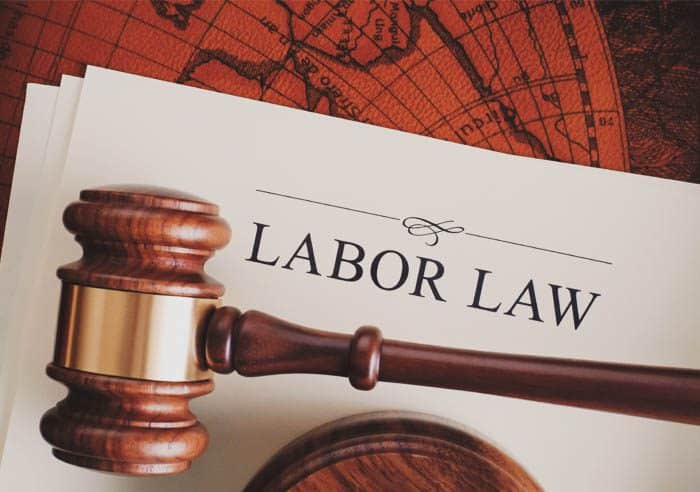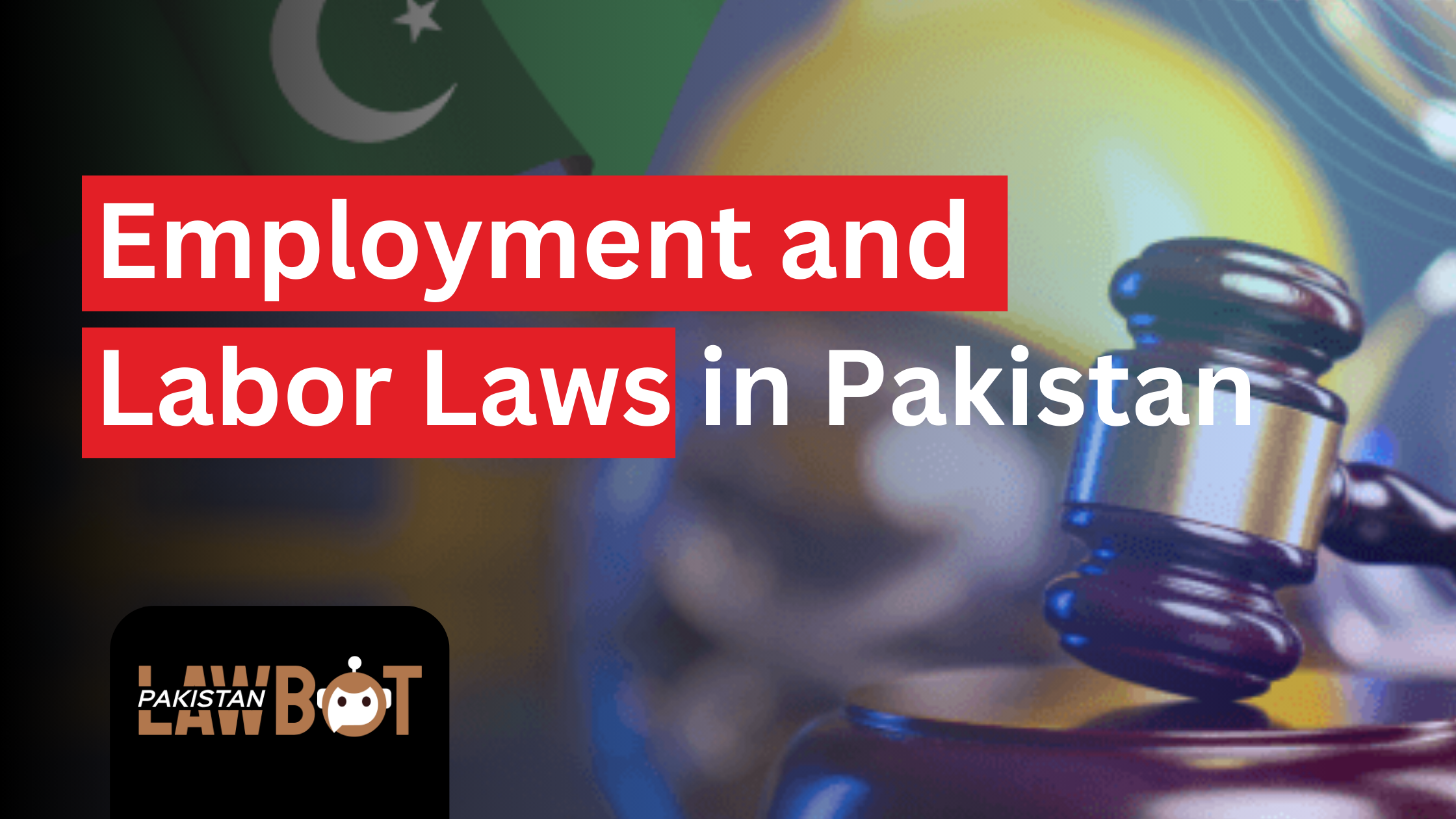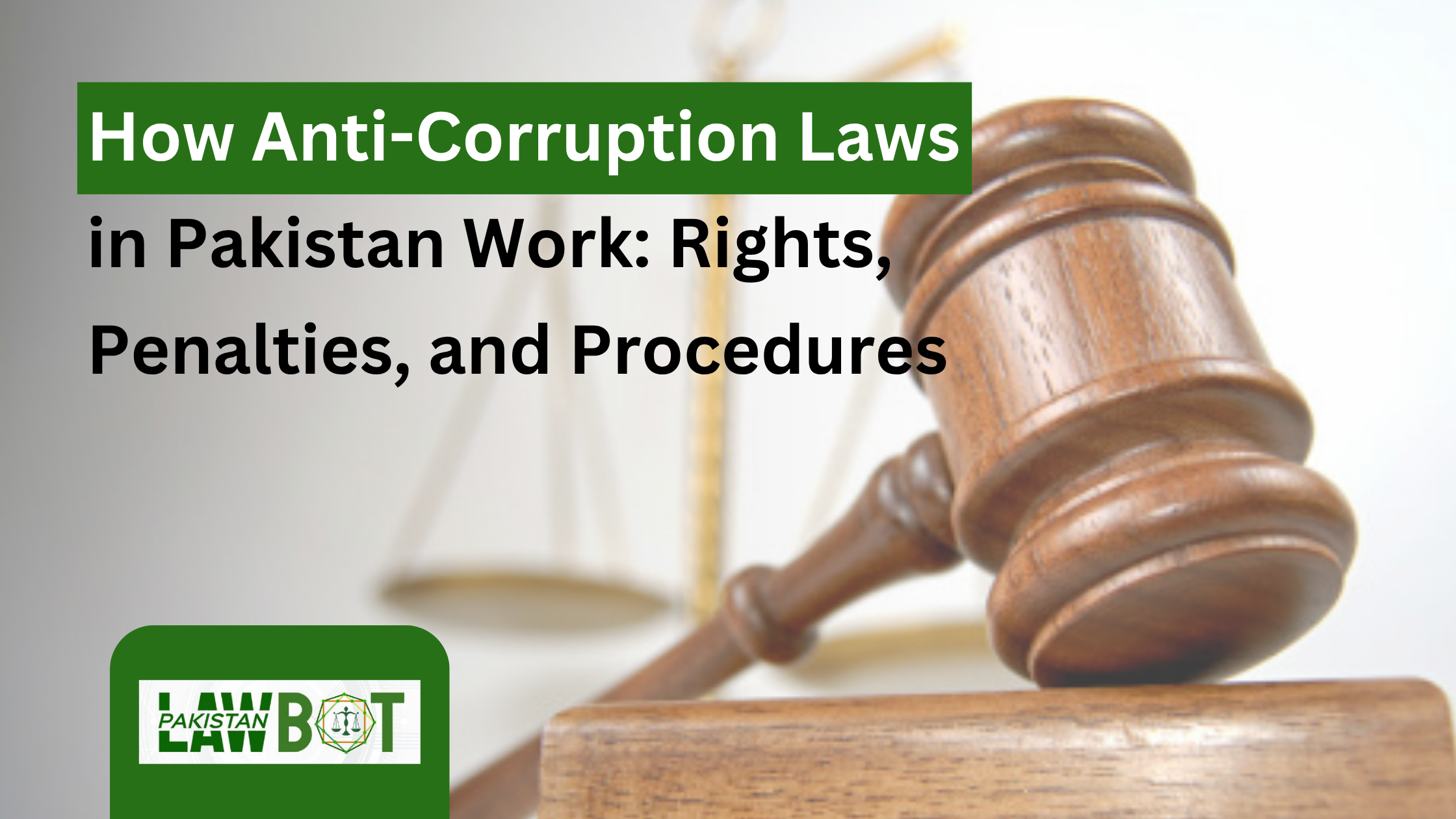Employment and Labor Laws in Pakistan
Pakistan is home to a diverse and rapidly evolving workforce, making it essential for employers and employees alike to grasp the key aspects of Understanding Employment and Labor Laws in Pakistan. Whether you are a business owner seeking to comply with legal standards or an individual hoping to protect your rights, these laws can significantly impact your professional life. In this comprehensive guide, we will walk you through all critical aspects of labor laws, workplace regulations, and the rights of employees in Pakistan. We will also share recent statistics, future predictions, and resources like the Pakistan Law Bot—your ultimate Ai Law chatbot—and other platforms such as Pakistanlawsite.com.
Below, you will find a detailed overview of employment policies, compliance requirements, dispute resolution, and tips for workers’ protection. We have also incorporated images, graphs, and tables to make the content engaging and easy to follow. Let’s begin our journey into Understanding Employment and Labor Laws in Pakistan.
Definition and Scope of Employment and Labor Laws in Pakistan
Employment and labor laws in Pakistan aim to govern relationships between employers, employees, and trade unions. The purpose of these regulations is to provide a legal framework for:
- Defining minimum wage standards
- Protecting worker rights (like safety, welfare, and working conditions)
- Regulating overtime, leave, and holidays
- Providing mechanisms for dispute resolution
These laws are particularly pivotal in large urban centers like Karachi, Lahore, and Islamabad, where industries and businesses flourish. However, compliance is equally essential in smaller towns and cities. Non-compliance can lead to legal repercussions, including fines and even imprisonment in extreme cases.
Why Are These Laws Important?
- They protect the fundamental rights of workers, including the right to fair wages and safe working conditions.
- They establish guidelines for employers to follow, ensuring consistency across industries.
- They help foster a balanced relationship between employers and employees, which is critical for business sustainability.
If you are an expat or a small business owner in Pakistan, you may need legal advice Pakistan to navigate these complexities. You can even seek help from an AI legal assistant Pakistan like the Pakistan Law Bot to clarify your queries without stepping into a lawyer’s office.

Key Aspects of Employment and Labor Laws in Pakistan
1. Employment Contracts
In Pakistan, employment contracts can be either written or oral. However, it is advisable to have a written contract to avoid any disputes. The contract should clearly outline the terms and conditions of employment, including job responsibilities, working hours, salary, leave entitlements, and termination procedures.
2. Working Hours and Overtime
The standard working hours in Pakistan are 48 hours per week, with a maximum of 9 hours per day. Employees are entitled to overtime pay for any work done beyond the standard working hours. The overtime rate is usually 1.5 times the normal wage.
3. Leave Entitlements
Employees in Pakistan are entitled to various types of leave, including annual leave, sick leave, and maternity leave. The specific entitlements may vary depending on the industry and the terms of the employment contract.
- Annual Leave: Employees are entitled to a minimum of 14 days of paid annual leave after completing one year of service.
- Sick Leave: Employees are entitled to a minimum of 10 days of paid sick leave per year.
- Maternity Leave: Female employees are entitled to 12 weeks of paid maternity leave, with at least 6 weeks to be taken after childbirth.
4. Termination of Employment
The termination of employment in Pakistan is governed by the terms of the employment contract and the relevant labor laws. Employers are required to provide a valid reason for termination and follow the due process. Employees who are terminated without a valid reason may be entitled to compensation.
5. Workplace Safety and Health
The Factories Act 1934 and other relevant legislation set out the requirements for workplace safety and health in Pakistan. Employers are required to provide a safe working environment, including proper ventilation, lighting, and sanitation facilities. They must also take measures to prevent accidents and occupational diseases.
6. Social Security and Benefits
Employees in Pakistan are entitled to various social security benefits, including old-age pensions, invalidity pensions, and survivors’ pensions. These benefits are provided under the Employees’ Old-Age Benefits Act 1976 and other relevant legislation.
Key Legislation Governing Employment in Pakistan
Pakistan has a rich set of laws and regulations that form the backbone of employment practices across the country. Below are some vital pieces of legislation:
- The Industrial Relations Act (IRA) 2012
- Governs the formation of trade unions.
- Sets guidelines for dispute resolution and collective bargaining.
- The Factories Act, 1934
- Primarily regulates working conditions in factories, including health, safety, and welfare.
- Covers aspects like working hours, leave, and overtime pay.
- Shops and Establishments Ordinance
- Regulates wages, working hours, and leaves in commercial shops, restaurants, and various service-based industries.
- Minimum Wages Ordinance
- Sets the minimum wage threshold.
- Enforced by provincial and federal authorities, ensuring fair pay for employees.
- Payment of Wages Act, 1936
- Ensures timely payment of wages without unauthorized deductions.
- Workers’ Welfare Fund Ordinance
- Provides financial assistance for housing, marriage grants, and other social welfare initiatives for workers.
Understanding Employment and Labor Laws in Pakistan cannot be complete without knowing how these statutes interact with each other. Each piece of legislation complements and reinforces the other, forming a comprehensive safety net for the workforce.
Pro Tip: For detailed study, you can refer to the official government websites or use trusted external resources like Pakistanlawsite.com, which hosts a wealth of legal documents and commentary.
Employee Rights and Protections
One of the core objectives of Pakistan’s labor laws is to uphold the rights of employees. These rights range from fair compensation to workplace safety and from the right to unionize to the right to legal redress.
Key Employee Rights at a Glance
| Right | Description |
|---|---|
| Fair Wage | Every employee should receive at least the minimum wage. |
| Safe Working Conditions | Employers must ensure a safe and hygienic work environment. |
| Working Hours & Overtime | Typically capped at 8 hours/day; extra compensation for overtime. |
| Leave Entitlements | Includes annual leaves, sick leaves, maternity/paternity leaves. |
| Social Security | Coverage under social security programs and benefits. |
| Freedom of Association | Right to form and join unions for collective bargaining. |
| Non-Discrimination | Equal employment opportunities irrespective of gender, religion, etc. |
When it comes to Understanding Employment and Labor Laws in Pakistan, recognizing these employee rights is crucial. Employees have the liberty to question any infringement of these rights, and they can even seek legal help to resolve such matters. Modern tools like Law bot Pakistan and Legal chatbot Pakistan can also assist in clarifying these employee rights and advising the next steps.
Employer Obligations and Compliance
The obligations for employers are just as significant. To abide by Pakistan law and maintain a healthy work environment, employers must:
- Register the Business and Employees
- Registration with relevant government bodies such as the Employees’ Old-Age Benefits Institution (EOBI).
- Proper record-keeping to ensure transparency.
- Provide a Safe Working Environment
- Compliance with health and safety standards outlined in the Factories Act.
- Regular inspections and training sessions on workplace safety.
- Maintain Proper Work Hours and Shifts
- Adherence to labor laws related to daily and weekly hour caps.
- Payment of overtime for extended working hours.
- Ensure Timely Payment of Wages
- Monthly or weekly disbursement of wages, as agreed.
- Zero unauthorized or arbitrary wage deductions.
- Offer Statutory Leaves and Benefits
- Paid annual leave, sick leave, maternity and paternity leave as mandated by law.
- Contribution to social security and pension funds.
- Prevent Discrimination and Harassment
- Zero-tolerance policy for harassment.
- Strict compliance with laws against discrimination based on gender, race, religion, or disability.
Failing to meet these obligations can result in punitive measures under relevant laws, and in extreme cases, businesses can lose their operating licenses. If you are an employer seeking legal advice for expats in Pakistan or for local hires, consulting an AI legal assistant Pakistan or a reputable legal firm will help you navigate these regulations effectively.
Dispute Resolution and Legal Aid
Inevitably, disputes may arise between employers and employees. Here’s how they are usually handled:
- Internal Grievance Mechanisms: Many large firms have an HR department that manages complaints and disputes.
- Collective Bargaining: Trade unions negotiate issues such as wages, working conditions, and benefits with management.
- Labor Courts and Tribunals: Specialized courts deal with labor-related litigation.
- Mediation and Arbitration: Alternative dispute resolution methods that save time and reduce legal costs.
Where to Get Help?
- Pakistan Law Bot: An excellent AI Law chatbot that provides 24/7 guidance.
- Free legal advice Pakistan: Non-profit organizations often run legal aid clinics.
- Online legal consultation Pakistan: Several platforms offer virtual consultations to clients across the country.
For more detailed insights, read our in-depth articles on dispute resolution:
- How AI is Revolutionizing Legal Assistance in Pakistan
- How to File a Lawsuit in Pakistan: A Step-by-Step Guide
- How to Handle Property Disputes in Pakistan
Recent Data (2024) and Future Outlook (2025)
To gain a forward-looking perspective on Understanding Employment and Labor Laws in Pakistan, it helps to review the most recent data and anticipate trends.
Employment Data for 2024
- Unemployment Rate: Around 6.0%
- Growth in Informal Sector: Increased by 4% compared to the previous year
- Minimum Wage Compliance: 80% of large-scale industries reported compliance
The government and private sector are focusing on upgrading labor laws to match international standards. New technologies and platforms—like Pakistan law AI solutions—are set to play a significant role in ensuring compliance.
Predictions for 2025
- Projected Unemployment Rate: Expected to drop to 5.5% due to new government policies and foreign investments.
- Legal Reforms: Comprehensive reforms in the pipeline aiming to streamline wage structures and employee protections.
- Technological Integration: Increasing reliance on AI-driven tools—like the Law bot Pakistan—for faster dispute resolution and contract management.
Predicted Employment Statistics for 2025
| Category | 2024 (Estimates) | 2025 (Predictions) |
|---|---|---|
| Unemployment Rate | 6.0% | 5.5% |
| Minimum Wage Compliance | 80% | 85% |
| Growth in Informal Sector | 4% Increase | 3% Increase |
| Adoption of AI Legal Tools | 20% | 30% |
Understanding Employment and Labor Laws in Pakistan in the upcoming year will revolve around embracing digital tools for compliance, reducing disputes through swift mediation, and refining labor legislation to offer more robust employee safeguards.
FAQs and Common Queries
- What is the current minimum wage in Pakistan?
The minimum wage varies by province and is updated periodically. As of 2024, the average national minimum wage hovers around PKR 25,000 to PKR 32,000 per month. However, it’s best to consult resources like Pakistanlawsite.com or an AI legal assistant Pakistan for the latest figures. - Are foreigners allowed to work in Pakistan?
Yes, foreign nationals can work in Pakistan, but they must secure the appropriate work permit and visa. For Legal advice for expats in Pakistan, consider using Pakistan Law Bot or other reputable online legal consultation services. - How do I file a complaint against my employer for unpaid wages?
You can file a complaint at the local labor court or seek assistance from labor unions. Online platforms offering Pakistan legal help can also guide you through the paperwork and process. - Is it mandatory for employers to offer maternity leave?
Yes, under the Maternity Benefits Ordinance, paid maternity leave is a legal requirement, typically for 12 weeks or more, depending on provincial legislation. - Can I negotiate my employment contract terms?
While statutory terms like minimum wage and leave entitlements are non-negotiable, you can negotiate additional benefits or flexible working arrangements.
Helpful Resources and Tools
When trying to abide by Pakistan employment law consultation or seeking legal services for small businesses Pakistan, the following resources and tools can be immensely beneficial:
- Pakistan Law Bot – Your go-to AI Law chatbot that offers quick legal assistance.
- Pakistanlawsite.com – Extensive database of Pakistan’s legislation, case law, and legal commentaries.
- Provincial Labor Departments – For region-specific inquiries and direct help.
- Legal Clinics and NGOs – Provide free or low-cost legal aid, especially in labor-related disputes.
If you want a deeper look into how artificial intelligence is reshaping the legal landscape, read our article: How AI is Revolutionizing Legal Assistance in Pakistan. Furthermore, for those dealing with family law, property issues, or criminal defense, we have specialized guides that can offer more targeted insights.
Conclusion
Understanding Employment and Labor Laws in Pakistan is essential for creating a fair, transparent, and thriving work environment. As Pakistan’s economy continues to expand and diversify, the need for robust regulatory frameworks and modern legal solutions has never been more critical. From ensuring timely wage payments to protecting worker rights, these laws offer a cornerstone for both employers and employees.
Modern tools like Pakistan Law Bot serve as AI legal assistant Pakistan solutions, granting quick and precise advice. Whether you’re a business owner aiming to comply with local regulations or an employee defending your rights, being aware of these laws is your first step toward effective governance and conflict resolution.
Key Takeaway: Stay updated with regulatory changes, employ AI-driven solutions for timely compliance, and ensure respectful, fair workplace practices. By doing so, you not only adhere to Pakistan law but also build a more engaged and productive workforce.
Thank you for reading! Should you need further information or personalized guidance, do not hesitate to consult Pakistan Law Bot or other expert legal platform







